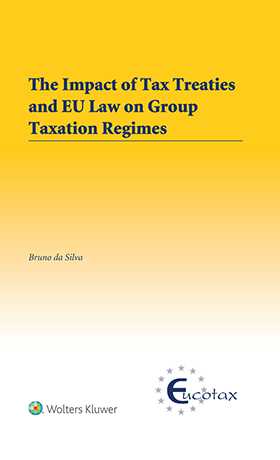In an increasingly interconnected global economy, tax treaties have become essential instruments for fostering international trade and investment. Within the European Union (EU), these agreements are particularly significant for the financial services sector, which plays a crucial role in the region’s economic infrastructure. This article explores how tax treaties benefit the EU’s financial services and examines the sector’s navigation of these complex legal frameworks.
Analyzing Tax Treaties: A Boon for EU Finance
Tax treaties are bilateral agreements between countries designed to prevent double taxation and tax evasion, providing a clear framework for cross-border economic activities. For the EU’s financial services sector, these treaties facilitate smoother international transactions by defining the tax obligations of financial institutions operating across borders. By ensuring that financial entities are not taxed multiple times on the same income, tax treaties enhance the attractiveness of cross-border investments and reduce the administrative burden on companies.
Moreover, tax treaties often include provisions for the exchange of information between signatory countries, which enhances transparency and reduces opportunities for tax evasion. This aspect is particularly beneficial for the EU’s financial services sector, which relies on trust and credibility. Enhanced transparency through tax treaties can lead to a more stable financial environment, encouraging both intra-EU and extra-EU investments. The ability to share information across borders also aids in the enforcement of tax regulations, thus promoting fair competition within the sector.
Additionally, tax treaties contribute to the harmonization of tax policies across the EU, which is crucial for the single market‘s functioning. By aligning tax rules, these agreements help minimize the discrepancies that can arise from different national tax systems. This harmonization is vital for financial entities that operate in multiple EU countries, as it reduces compliance costs and regulatory uncertainties. Consequently, tax treaties are a strategic tool in fostering a more integrated and efficient financial market within the EU.
EU Financial Services: Navigating Tax Treaty Effects
Despite the clear benefits, navigating the complexities of tax treaties can pose challenges for the EU’s financial services sector. Each treaty is a unique agreement between two countries, and financial institutions must understand the specific provisions and implications of each one. This complexity requires significant resources and expertise to ensure compliance and optimize tax strategies. As the EU continues to expand its network of tax treaties, financial entities must invest in skilled personnel and technology to manage their international tax obligations effectively.
Furthermore, differences in the interpretation and implementation of tax treaties by member states can lead to legal uncertainties and disputes. For instance, variations in how countries define key concepts such as "permanent establishment" or "beneficial ownership" can affect the tax liabilities of financial institutions. To navigate these challenges, financial services firms often rely on legal advisors and tax experts to interpret treaty provisions accurately. This reliance underscores the importance of continuous dialogue and cooperation between the industry and policymakers to address ambiguities and promote a consistent application of tax treaties across the EU.
The dynamic nature of international tax policies also requires the EU’s financial services sector to remain agile and adaptable. As global tax standards evolve, such as with the OECD’s Base Erosion and Profit Shifting (BEPS) initiatives, tax treaties may be renegotiated or revised to align with new norms. Financial institutions must stay informed about these changes and adjust their strategies accordingly to maintain compliance and competitiveness. The ability to navigate these evolving landscapes is crucial for the sector’s resilience and long-term success.
Tax treaties undeniably play a pivotal role in shaping the EU’s financial services sector by providing a framework for tax certainty and reducing barriers to cross-border economic activities. However, the complexity and evolving nature of these agreements require financial institutions to be vigilant and proactive in their approach to compliance and strategic planning. As the EU continues to engage in international tax cooperation, the financial services sector must leverage these treaties to enhance its competitiveness while contributing to a fair and transparent global tax environment.
